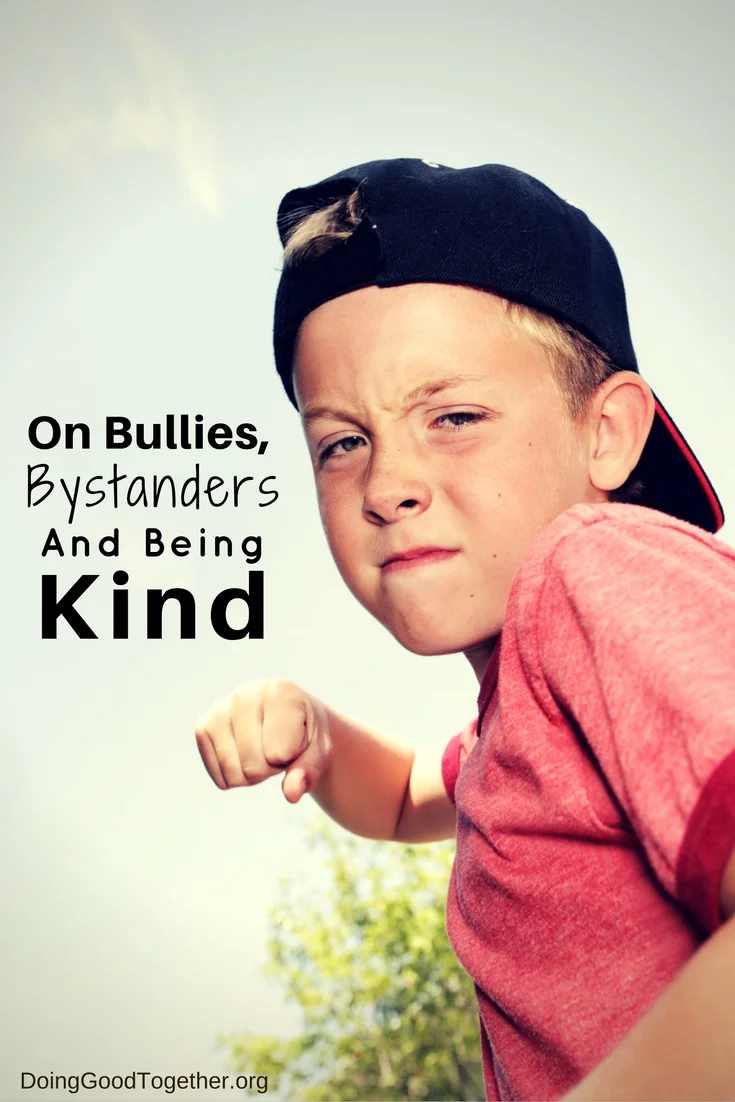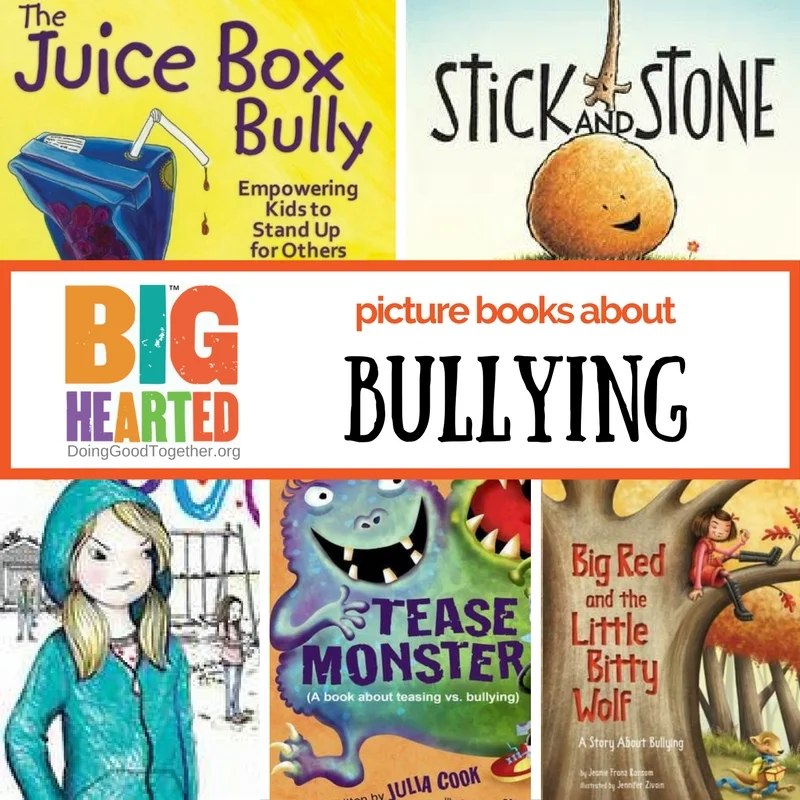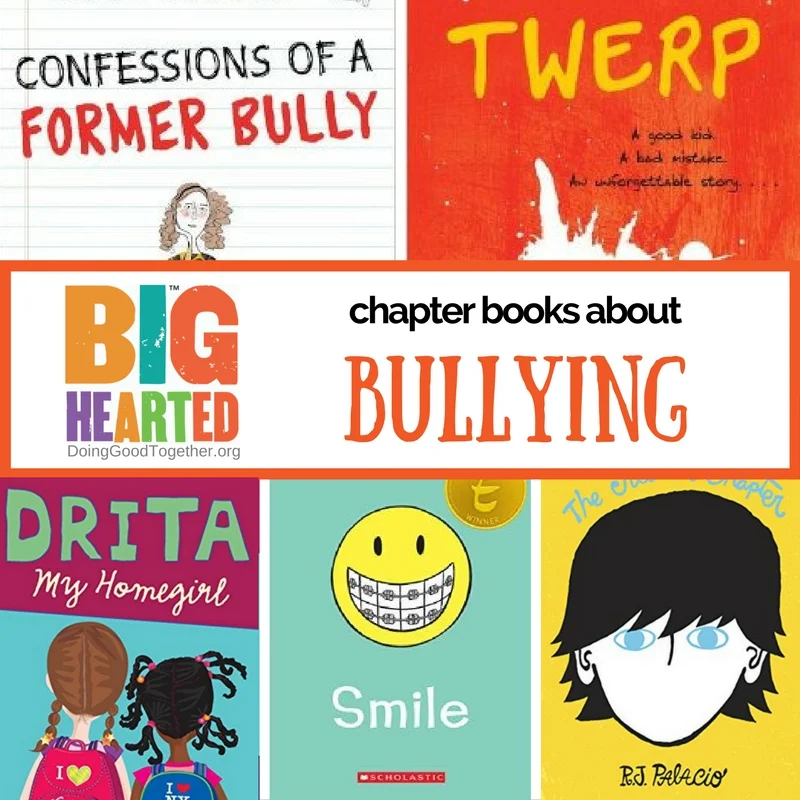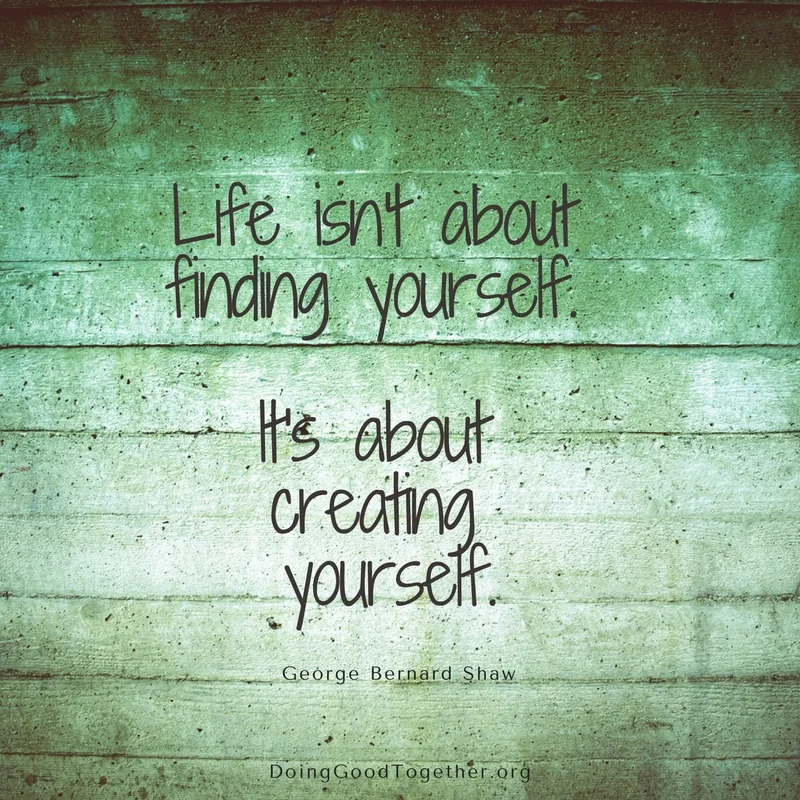The only thing as alarming as the thought of your child being bullied is the thought that your child might be the bully,
Too many popular fictional characters and – disappointingly enough – political leaders are making bullying behavior seem like normal grown-up protocol.
But isn't bullying just part of childhood?
This question comes up often enough. Sure, teasing is a natural part of childhood. Hurt feelings certainly can't be avoided. From toddlerhood on up, we must all learn to settle conflict and manage disagreements. None of these constitutes bullying.
Social upheaval is not bullying when it is temporary, between peers, and ultimately resolved. On the other hand, bullying is intentionally mean, directed from someone in a position of power or popularity, and ongoing.
It's a growing problem.
According to Pacer's National Bullying Prevention Center, one in four students report bullying each school year, most often due to differences in looks, body shape, and race.
One in four is disheartening. Even worse, many more incidents go unreported.
It's up to us as parents to teach and role model life as an "upstander."
It's up to us as parents to speak out when we notice ongoing, cruel behavior, and to teach our children to stand up with us.
We must also teach our children to stand down when they suspect their own behavior has turned hurtful.
Who among us hasn't experienced that moment of meanness? That surge of power when the perfect comeback leaps off our tongue to end an argument or that witty quip makes the cool kid laugh ... even though you know the words are harsh and hurtful to others.
We must all learn to step away from these moments of unnecessary harshness.
And it's up to us as parents to teach kindness, intentionally and consistently. Kids who believe they have the power to make a difference are less likely to stand by when they encounter a bully, according to the Pacer.
A kind heart can guide us, even in the midst of disagreements, even when teasing, even when we're feeling bold and powerful.
Kids – and adults too – face difficult situations more boldly if they've thought through their responses ahead of time.
I know the schools are working to combat bullying, but we can't leave it to them alone. It's our job as parents to prepare our kids to stand up to bullies and to be sure movies and politicians aren't the only ones role modeling how to treat others.
To this end we've compiled the list below to get your family started.
For those who want to dig deeper into this issue, we've created an exclusive downloadable anti-bullying tool kit for our members. Join our Big-Hearted Families Membership Circle for fun and helpful worksheets geared at families, including "What if" anti-bullying prompts, a 12-week kindness challenge, a stress relief brainstorm, and so much more.
We'll hope to see you in the membership circle! Until then, here are a few basics to get your family talking, thinking, and preparing to be Upstanders.
1. Make it a metaphor.
You can't take back unkind words. Illustrate this simple idea with a hands-on demonstration, like these three clever ideas perfect for families as well as classrooms:
- Toothpaste: Words are like toothpaste. No amount of apologizing can stuff it back into the tube. Give it a try. Though kids usually enjoy trying to prove me wrong!
- Paper Heart: Hurtful words leave a mark on your heart. Cut out a construction paper heart. Crinkle it up while sharing examples of how words can hurt. Although you should apologize, no words can make the paper look as good as new.
- Bruised Apple: Sticks and stones may break bones, but hurtful words leave deep bruises. Check out this bittersweet bruised apple demonstration for instructions.
2. Read together.
Books make it so much easier to discuss scenarios of bullying in a practical and nuanced way. Use our recommended titles and conversation starters to dig into this issue in creative ways.
3. Get the app.
Encourage your teen or tween to download the "Sit with Us" app. Created by a teen fed up with eating lunch alone, this app let's kids designate themselves as "ambassadors" and host "open tables" for others looking for a lunch buddy. Though this app is very new, it is rapidly gaining in popularity.
4. Create your best self.
Kids are busily building their understanding of who they are. As often as possible, we need to reinforce the idea that we are a family of helpers. We are kind. We are people who stand up and make a difference.
It works, believe me.
Six years into my big-hearted parenting experience, my kids never accept the way things are as a given. They see themselves as change makers. I've written before about – let me be honest – how annoying this audacity can be, but the truth is, this big-hearted identity makes us all think twice before we act with meanness in moments of passion.
Together, let's strike a kinder tone in our conversations and disagreements. Let's stand up against bullies and bigots and hateful speech. And let's empower our children to step in and speak out against bullies wherever they encounter them.
Parenting isn't about toughening up our children for the real world. It's about raising our children to be thoughtful, confident, respectful, and brave. The sort of adults who get involved when they notice injustice.
Join our membership circle, and grab your free download!
If you like our free resources, you'll love our membership program! Join today and we'll help you keep kindness on your family calendar all year long.
Disclaimer: Doing Good Together™ is a participant in the Amazon Services LLC Associates Program, an affiliate advertising program designed to provide a means for sites to earn advertising fees by advertising and linking to Amazon.com.
The recommendations we offer are based solely on our mission to empower parents to raise children who care and contribute.







